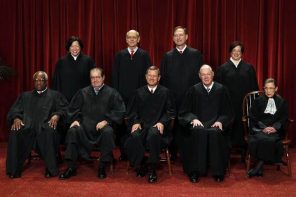Illinois State Rep. Deborah Mell captures the growing trend of openly gay lawmakers who are using their personal stories to try to sway laws in favor of marriage equality. Rep. Mell was successful in her push to get civil unions recognized in her state.
Right now, there are 85 openly gay or lesbian legislators around the country. That’s a small percentage of the more than 7,300 lawmakers out there, but their outspokenness about how inequality in marriage laws are affecting their families appears to be making a difference.
In Maryland, where full marriage rights are on the verge of being passed by the legislature and signed into law by a supportive governor, the six gay and lesbian lawmakers in that body approached their colleagues for personal discussions and also publicly proclaimed their stories. Some lawmakers, like Sen. James Brochin, changed their vote to support marriage equality after hearing from gay colleagues, and hearing demonizing anti-gay rants in committee.
That has emboldened the lawmakers to speak out more:
Del. Luke Clippinger (D-Baltimore) said he has probably talked to at least 10 delegates, including several fellow freshmen with whom he bonded on a three-day bus trip across the state in December for new lawmakers.
In some cases, Clippinger said, he has shared his story of coming out as a gay man in his late 20s as he was finishing law school.
“We all come from different places and different perspectives and life experiences,” Clippinger said. “On issues big and small, people want to hear from people who are directly affected.”
Maggie Gallagher, chairman of the board for the National Organization for Marriage, is one of those rallying against the measure and encouraging anti-gay supporters to talk about how they are “directly affected,” and claiming that black churches oppose the bill.
Some black churches have pressured legislator to vote against the bill, and those are being highlighted by the bill’s opponents. Robert Anderson Jr., pastor of Colonial Baptist Church in Randallstown, Md., told Baptist Press — the news service of the Southern Baptist Convention — that he resents the fight for marriage equality being compared with the civil rights movement and instead calls it an attempt “to create a system and special laws for a group of citizens that are living in immorality and wanting to force all of us to embrace that as if it is morally equivalent, that is wrong.”
A recent Pew Poll, however, shows that the public is fairly evenly divided on the issue and don’t seem too concerned that they will be forced to embrace anyone’s “immorality.” And what is happening at the legislative level is what has needed to happen for a long time—gay and lesbian legislators are telling their colleagues the truth about their lives.



